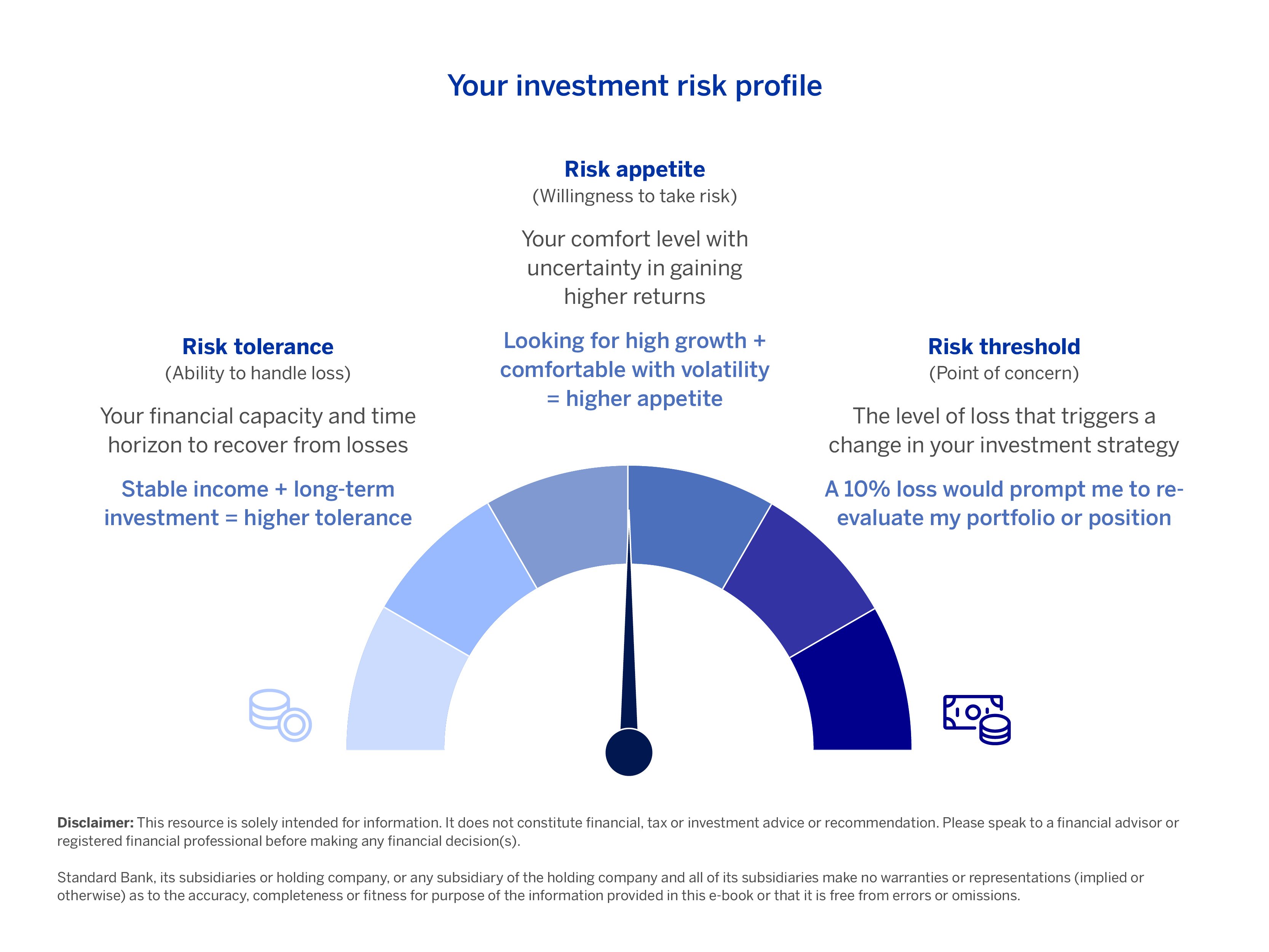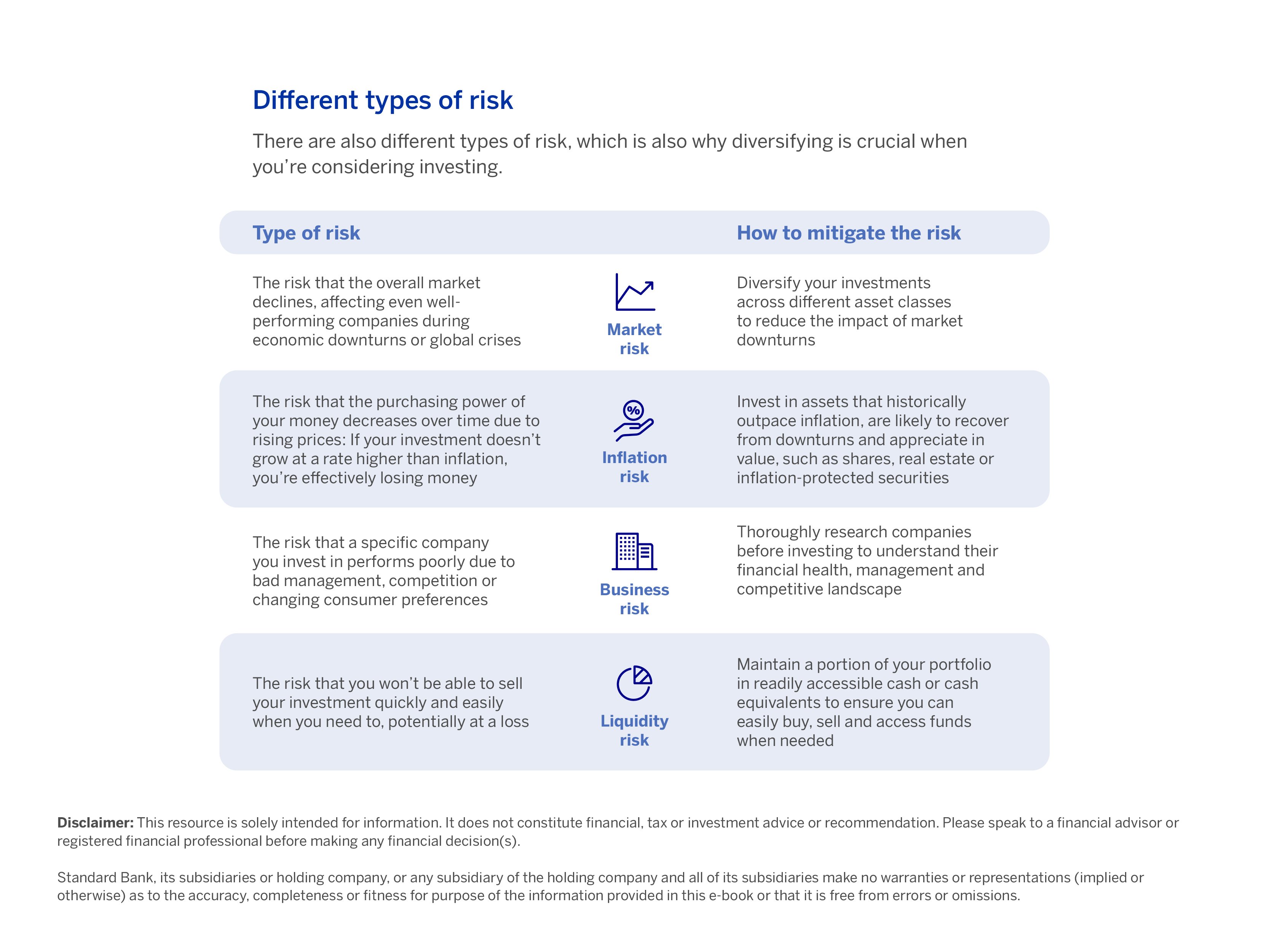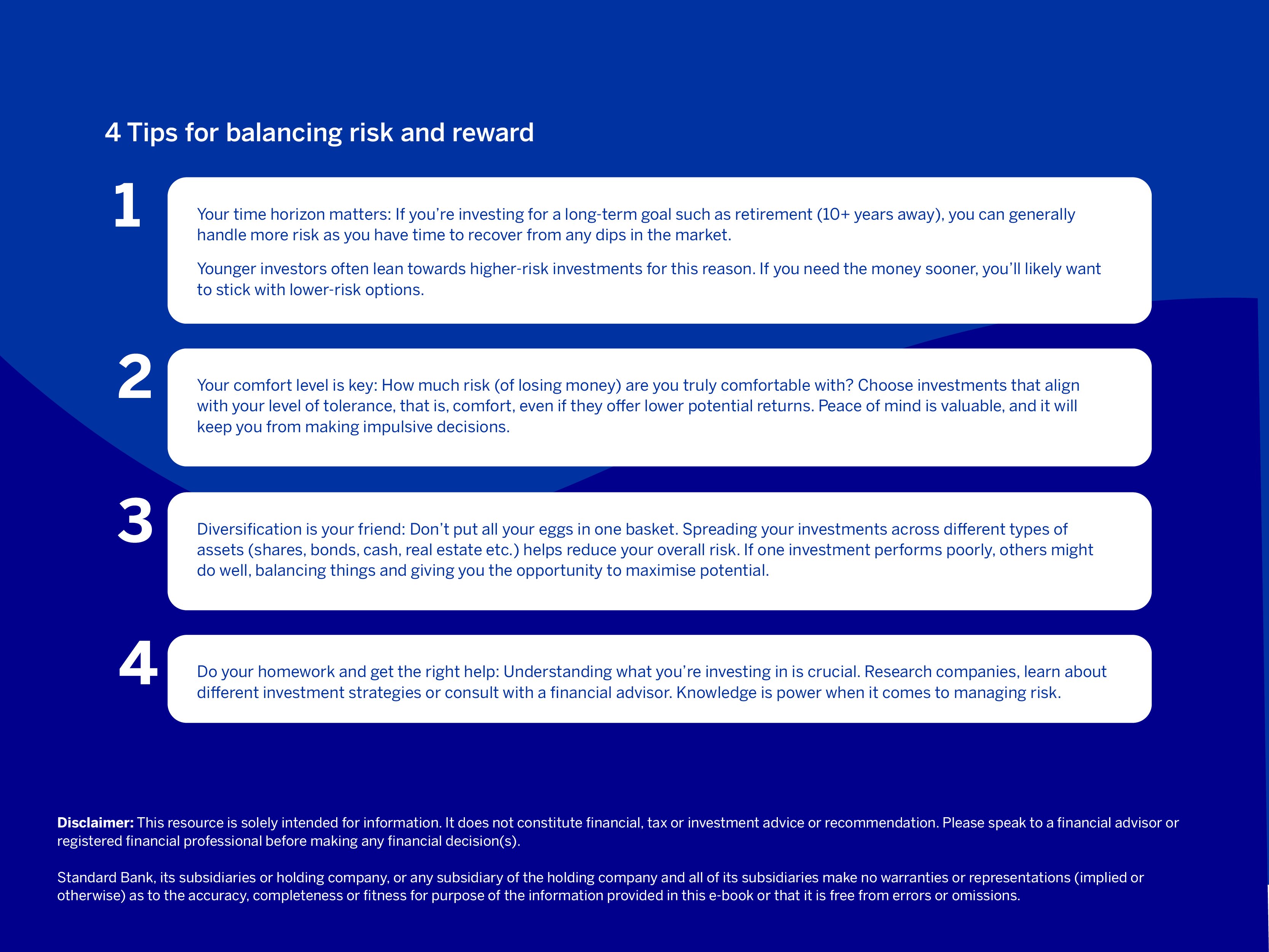
Understanding investment risk vs reward
Investing is a great way to grow your money and your wealth, but it does come with some risks. It’s important to understand what risk means and what the relationship is between risk and reward so that you can determine whether it’s worth putting your money on the line and what you can do to avoid potential losses.
Here’s a closer look at how to manage risk when investing so you can determine whether it’s the right investment for you and move more quickly towards achieving your financial goals.

What is risk?
Risk is the possibility or the chance that the outcome of your investment will differ to what you expected from it. It’s the possibility of losing some or all the money in your investment. Your investment can face various types of risk, but luckily there are strategies to balance out the risks and minimise the potential losses.
Generally, investments that offer higher potential rewards come with higher levels of risk. Everyone has a different appetite for risk, and therefore, your risk profile needs to be considered when making investments.
Time and access are often big factors in how much risk you can afford:
- If you need the money to grow quickly, an option such as stocks could increase your money’s value, but you’re exposed to changes in the market.
- A savings account is a safer way to grow your money with your capital guaranteed, but your money will need a longer time to grow.
- A property comes with some risk, such as market conditions changing and your ability to continue financing it, but the long-term investment element means you could probably ride it out and recover.
- Something like forex trading (trading one form of currency for another) can make you a lot of money quickly, but you can also lose a lot if the market suddenly changes.
Different types of risk
Understanding the types of risk and how they can influence the outcome of your investment is crucial for making informed financial decisions.
Some common types of risk include the following:
- Market risk: Changes in the market’s performance could impact the value of your investment.
- Inflation risk: If your investment is in an account that doesn’t let it grow quickly enough, inflation will erode the purchasing power of your investment and, therefore, reduce the value of your returns/income from it.
- Liquidity risk: The risk that you won’t be able to sell your investments when you need to and, therefore, be able to access the value when you need to.
- Concentration risk: The risk that you’re too heavily invested in one thing, i.e. that all your eggs are in one basket, such as an asset class, sector or company.

How to balance out the risk
When you’re investing in something, you need to look at how comfortable you are with risk and then build an investment strategy around that. By knowing that there will be risk, you can make changes and plan for it so that you can protect (as much as you can) against losses.
When you diversify your investments/portfolio, it means you spread the risk and avoid overexposure to a single investment. Different investments will perform differently at different times or across periods, so you want to be able to benefit from a range of investments that vary in risk so that you can offset any potential losses.
Risk also changes with time. When you are younger, you can afford higher-risk investments because you have time to recover if there are losses, whereas if you’re close to retirement, you don’t want to take on risk that could impact the value of your investment.

|
Top tip Not taking any risk is also a risk. Being too conservative with your investment approach means you’ll miss out on the gains. |
Disclaimer: This article is for information purposes only and does not constitute financial, tax or investment advice. Readers are strongly encouraged to seek financial or legal advice before making any decisions based on the content.
Standard Bank, its subsidiaries or holding company, any subsidiary of the holding company and all of its subsidiaries, make no warranties or representations (implied or expressed) as to the accuracy, completeness, or suitability of the content of this article. The use of the article and any reliance on the content is at the reader’s risk.
Download our free e-book and start your investment journey with confidence.



